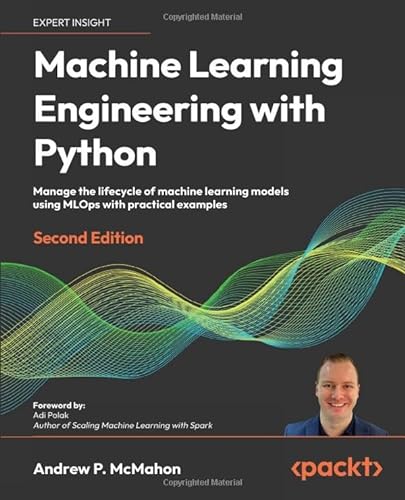

Most ebook files are in PDF format, so you can easily read them using various software such as Foxit Reader or directly on the Google Chrome browser.
Some ebook files are released by publishers in other formats such as .awz, .mobi, .epub, .fb2, etc. You may need to install specific software to read these formats on mobile/PC, such as Calibre.
Please read the tutorial at this link: https://ebookbell.com/faq
We offer FREE conversion to the popular formats you request; however, this may take some time. Therefore, right after payment, please email us, and we will try to provide the service as quickly as possible.
For some exceptional file formats or broken links (if any), please refrain from opening any disputes. Instead, email us first, and we will try to assist within a maximum of 6 hours.
EbookBell Team

4.3
88 reviewsIncludes a new chapter on generative AI and large language models (LLMs) and building a pipeline that leverages LLMs using LangChain
Key Features
This second edition delves deeper into key machine learning topics, CI/CD, and system design
Explore core MLOps practices, such as model management and performance monitoring
Build end-to-end examples of deployable ML microservices and pipelines using AWS and open-source tools
Book Description
This second edition of Machine Learning Engineering with Python is the practical guide that MLOps and ML engineers need to build solutions to real-world problems. The book provides you with the skills you need to stay ahead in this rapidly evolving field.
Machine Learning Engineering with Python adopts an example-based approach to help you develop your skills and covers the technical concepts, implementation patterns, and development methodologies you need. You'll explore the key steps of the ML development lifecycle and create your own standardized 'model factory' for training and retraining of models. You'll learn to employ concepts like CI/CD and how to detect different types of drift.
Get hands-on with the latest in deployment architectures and discover methods for scaling your solutions. This edition delves deeper into all aspects of ML engineering and MLOps, with emphasis on the latest open-source and cloud-based technologies. This includes a completely revamped approach to advanced pipelining and orchestration techniques.
With a new chapter on deep learning, generative AI, and LLMOps, you'll learn to use tools like LangChain, PyTorch, and Hugging Face to leverage LLMs for supercharged analysis. You'll also explore AI assistants like GitHub Copilot to become more productive, and then understand the engineering considerations of working with deep learning.